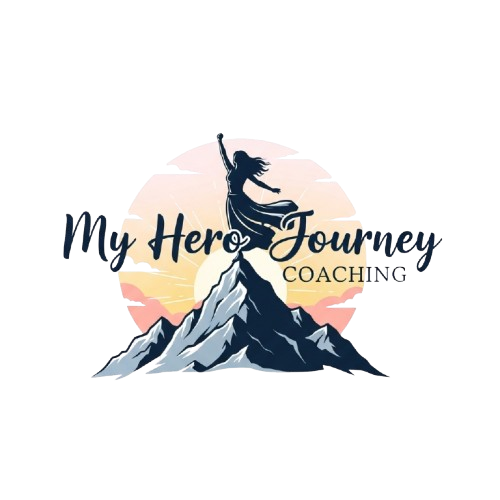Executive Coaching: Bridge the Gap to Leadership Success
Discover how executive coaching with MyHeroJourneyCoaching helps overcome imposter syndrome and boosts leadership confidence. Start your journey today!
What is executive coaching? “Executive coaching is a personalised process to enhance leadership skills and confidence.”
Overcome Imposter Syndrome with Coaching
Perhaps you have doubts about your abilities, attributing your success to luck, fearing that one day your perceived lack of talent will be exposed and everything you’ve achieved might crumble.
Did you know 70% of executives like you feel like impostors at some point? [Harvard Business Review].
Take a moment and pause. Does this sound familiar?
These are common feelings that emerge in my executive coaching sessions at my practice MyHeroJourneyCoaching.
But with the right guidance through coaching, you can overcome them. Allow me to explain how, by sharing the story of one of my clients, whom we’ll call Amanda for confidentiality.
Amanda’s Story: From Self-Doubt to Leadership Success
Amanda came to me after completing an advanced finance leadership program, referred by the course provider. They had a strong technical foundation in corporate finance, regulatory compliance, and analytical reporting.
Despite her impressive qualifications, Amanda felt an undeniable void—a gap that her technical mastery couldn’t fill.
She admired her boss, wondering how they exuded such confidence when addressing the board, managed to see the bigger picture while she got stuck in the details, and effortlessly wore shoes that Amanda feared she could never fill.
The looming fear of failure and exposure as an impostor cast a shadow over her aspirations.
I could sense her struggles and simply said, "I think coaching could really help you."
Coaching provides a safe, confidential environment—a space free from judgment where raw, honest conversations can happen. Unlike the workplace, home, or social settings, there are no risks of repercussions for your thoughts or feelings here.
It’s about clarity, growth, and introspection.
We began with a half-hour introductory session to explore how coaching could address her fears and anxieties.
I explained the coaching process, the ethical code I’m bound by, and, most importantly, the level of commitment Amanda would need to make for the sessions to be truly impactful.
Coaching Is About Chemistry and Trust
During that initial meeting, I also assessed if we could work together. Chemistry is key in coaching. Without mutual understanding and connection, the process won’t work. This isn’t about judgment or bias—it’s about whether the partnership can effectively meet the client’s needs.
Interestingly, many clients often ask me to mentor them, unaware of the critical difference between coaching and mentoring. Here’s my go-to analogy: A coach encourages you to get in the driver’s seat and navigate, while a mentor shows you how to drive. Coaching empowers you to find the answers within yourself rather than relying on someone else’s advice through reflective techniques, coaching uncovers and dismantles self-doubt.
The initial session with Amanda went well, and we agreed on six one-hour coaching sessions over the next seven months.
She also filled out a pre-coaching questionnaire, giving me insight into her learning style, personality type, perceived strengths, and weaknesses—and most importantly, what she wanted to achieve.
Amanda’s goal was clear: she wanted to secure the next job up the corporate ladder.
However, she struggled with confidence during interviews, lacked an understanding of the balance between operational and strategic thinking, and felt the weight of imposter syndrome.
How does coaching help imposter syndrome?
Through reflective techniques, coaching uncovers and dismantles self-doubt.
The Work Begins
Over the following months, we worked diligently toward Amanda’s goal of career advancement while addressing the underlying issues of self-doubt and anxiety. Coaching isn’t always easy.
We faced challenging moments as I used a variety of coaching techniques and tools to probe, question, and dismantle the limiting beliefs Amanda had carried with her.
We used reflective exercises to reframe Amanda’s limiting beliefs, helping her see her achievements as earned.
One of the most important aspects of coaching is active listening. This is the cornerstone of meaningful coaching conversations. I invite you to reflect on your own listening skills.
In your next conversation with a colleague or client, notice how often you’re already thinking about what you want to say next, instead of fully listening.
Another key aspect is refraining from offering advice unless specifically asked.
Think about it—when someone responds to an issue you have raised and says, “Well, if I were you, I’d do X,” does it truly resonate with you? The truth is, only you have the answer; it’s my role as a coach to help you find it.
The Breakthrough - How executive coaching helps imposter syndrome
By the sixth session, Amanda had exciting news. She had applied for a senior role with more responsibility, status, and a higher salary at a large organisation. And she had been offered the role!
She shared how the coaching process helped her confront and conquer her anxieties, allowing her to shine as the chosen candidate.
However, her next question was, "Can I actually do the job?"
And that’s a topic for another article.
In our remaining sessions, we shifted focus, preparing Amanda for her new role, equipping her with the tools to confidently step into her next chapter.
Conclusion
Amanda’s story is just one example of how executive coaching with a qualified coach can bridge the gap between where you are and where you want to be.
By addressing internal barriers, building confidence, and nurturing growth, coaching lifts your eyes toward opportunities you may have previously felt you could not achieve.
If you’ve ever felt like your potential is just out of reach, or you’re struggling with imposter syndrome, please contact me. The journey to hero is one worth embarking on.
Why Choose MyHeroJourneyCoaching - Contact Me
Contact me at the email in the footer for a free discovery call.
Iain McCulloch
Level 7 Certificate for Executive and Senior Level Coaches and Mentors (8589-21)
Copyright - Iain McCulloch 2024

